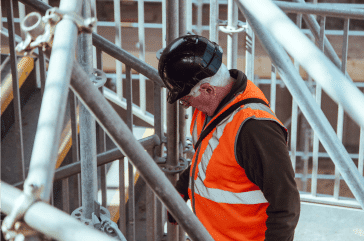Construction projects involve significant risks, including financial risks, safety risks, and legal risks. To mitigate these risks, parties involved in construction projects commonly use surety bonds.
Surety bonds are legal agreements that provide financial protection to the parties involved, including project owners, contractors, and suppliers. In this article, you will learn more about the importance of surety bonds in construction projects, the types of surety bonds commonly used, and how they work.
What Are Surety Bonds?
They are legally binding contracts between three parties: the principal, the obligee, and the surety. The principal needs to perform an obligation, such as completing a construction project. The obligee requires the performance of the obligation, such as the project owner. The surety guarantees the principal’s rendition of the obligation. In construction projects, surety bonds are used to protect project owners, contractors, and suppliers.
The Importance of Surety Bonds in Construction
Construction projects are complex and involve substantial financial investments. They also involve multiple parties, including contractors, suppliers, subcontractors, and project owners. Surety bonds provide an essential layer of protection for all parties involved. Here are some reasons why surety bonds are crucial to construction:
-
Protecting Project Owners
Surety bonds protect project owners by ensuring that they receive the completed project as agreed upon in the contract. If the contractor fails to complete the project, the surety serves to ensure that the project is completed, either by hiring a new contractor or completing the project themselves.
This ensures that the project owner is not left with an incomplete project and avoids costly delays and legal battles. Surety bonds also provide financial protection to project owners in case the contractor does not perform as agreed.
-
Ensuring Contractor Performance
Surety bonds ensure that contractors perform their obligations as outlined in the contract. The surety may also provide financial compensation to the project owner for any damages resulting from the contractor’s failure to perform. This ensures that the project is completed on time, as agreed upon, and within budget.
-
Protecting Suppliers and Subcontractors
Surety bonds also protect suppliers and subcontractors by ensuring that they are paid for their work or materials. If the contractor fails to pay their suppliers or subcontractors, the surety will step in to ensure that they are paid.
This protects suppliers and subcontractors from financial loss and ensures that they can continue to work on the project. This protection is vital for small or medium-sized subcontractors, who may not have the financial resources to absorb a significant financial loss.
Types of Surety Bonds
-
Performance Bonds
Performance bonds are required after a contract has been awarded. They ensure that the contractor completes the project as outlined in the agreement. Performance bonds protect the project owner from potential financial loss if the contractor does not complete the project as agreed upon.
-
Payment Bonds
Payment bonds make sure that both suppliers and subcontractors are paid for their work or materials, even if the contractor fails to pay them. Payment bonds provide financial protection to suppliers and subcontractors, ensuring that they receive payment for their work.
-
Maintenance Bonds
Maintenance bonds are required after the project is completed and ensure that the contractor will correct any defects or issues that arise during the maintenance period. Maintenance bonds ensure that the project owner is not left with a poorly constructed or maintained project.
Conclusion
Surety bonds are an essential aspect of construction projects. They provide financial protection to all parties involved and ensure that the project is completed as outlined in the contract.
Project owners, contractors, and suppliers should work together to ensure that surety bonds are in place before starting any construction project. By doing so, they can mitigate the risks associated with construction projects and ensure the successful completion of the project.
For USA bonding programs, rely on Approved Casualty & Surety. We are one of Canada’s most trusted wholesale intermediaries and MGAs. Located in Mississauga, Ontario, we work with insurance brokers from all across North America to deliver a wide range of surety bonding and related insurance products. Call now!







